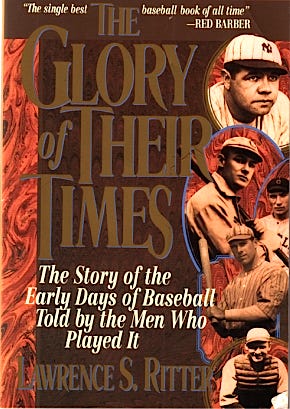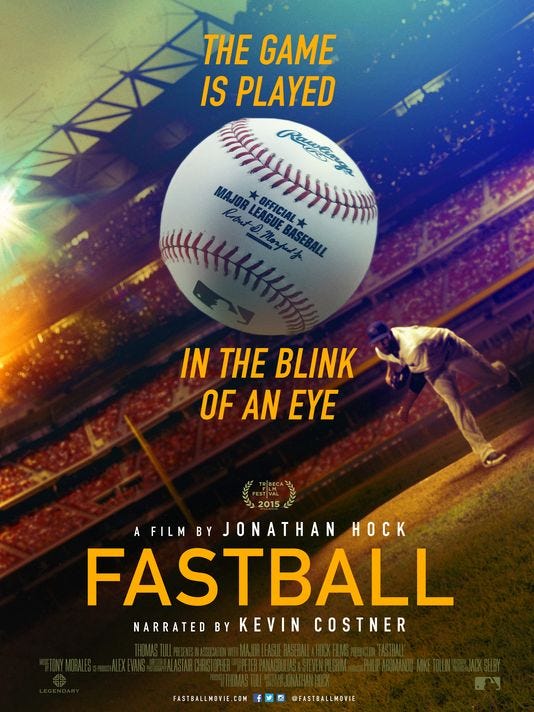Sports Biblio Digest, 3.27.16

News, Views and Reviews About Sports Books, History and Culture
In This Issue: Remembering Johan Cruyff and Joe Garagiola; Baseball Poets and Baby Boomers; 130 Years of The Sporting News; ‘Fastball’ the Movie
Welcome to the Sports Biblio Digest, an e-mail newsletter delivered each Sunday. You can subscribe here and search the archives.
This is Digest issue No. 34, published March 27, 2016. The Digest is a companion to the Sports Biblio website, which is updated every Monday, Wednesday and Friday.
PLEASE NOTE: The Digest will not be published next Sunday, April 3, as I’m taking a bit of a spring break. The newsletter will return the following Sunday, April 10. I’d love to hear what you think about the Digest, and Sports Biblio. Send feedback, suggestions, book recommendations and requests for interviews to Wendy Parker, sportsbiblio@gmail.com.
You can also follow Sports Biblio on Twitter and hit the “like” button on Facebook.
* * * * * * * *
The Dutch Master of Modern Soccer
Just a few months after he was diagnosed with lung cancer, Dutch soccer legend Johan Cruyff died Thursday at the age of 68.
As the spearhead of club teams at Ajax Amsterdam and Barcelona, and for coach Rinus Michels’ “Total Football” concept of the 1970s, Cruyff’s career, both as a player and a manager, symbolized the modern game perhaps like no other.
David Winner, author of several books about Dutch soccer, including the heralded “Brilliant Orange: The Neurotic Genius of Dutch Football,” wrote that Cruyff also embodied a society:
“Cruyff was instinctively able to develop further ideas which were at the core of the postwar Dutch economic miracle. Cruyff was anti-system, but paradoxically, he had a system: one based on creative individualism. Of his successors who created their own rigid systems—people such as Louis Van Gaal—few seem to have understood this.”
Earlier this month, Bleacher Report posted Winner’s terrific longform piece “The Church of Cruyff,” arguing that the stylish play of recent Barcelona and Spain teams, as well as Bayern Munich and Germany, can be attributed to Cruyff.
Cruyff was a man of many phrases, perhaps most notably that “football is a game you play with your brain.”
In The Financial Times, the Dutch-British writer Simon Kuper described “total football” as “a sort of cerebral orchestra,” with Cruyff as a conductor of “constant improvisation.”
More tributes: ESPNFC | BBC | The New Yorker | FourFourTwo
The Generosity of Joe Garagiola
Just a few months after the death of Yogi Berra, his St. Louis boyhood friend, Joe Garagiola passed away this week at the age of 90.
His playing career was brief, from 1946 to 1954, but he endeared himself to later generations as a broadcaster, pitchman and baseball ambassador.
Baseball book blogger Ron Kaplan rounded up books by Garagiola this week, saying that the 1960 memoir “Baseball is a Funny Game” was his generation’s 'Moneyball.' ”
Later in his life, Garagiola retired to the Phoenix area, serving as a special assistant for the Arizona Diamondbacks. He got involved in numerous community and charitable projects, including a mission school for Gila River native American children run by Franciscan nuns.
A sister in charge of the school once said that “there was no limit to his generosity,” a sentiment shared by many. USA Today sportswriter Josh Peter told me it was “pure joy” for him to interview Garagiola for a story about Berra’s 90th birthday last year.
Garagiola's natural warmth and humor were always on display regardless of the occasion. As San Francisco Chronicle columnist Bruce Jenkins recalled, Garagiola was a master of the send-up, concocting this doozy about Dennis Eckersley after giving up a home run:
“It was a Bogart. I had good gas and I get good iron for what I do, so I don’t need to have anybody take me to the bridge. I gotta get this cheese into the kitchen, or at least let him know about the yakker. I can’t let it end up where he ding-dongs me in front of thirty-five grand.”
Baseball Poets and Baby Boomers
On the Sports Biblio site this week I got in the swing of baseball season, first by writing about two things I love, albeit not together: baseball and poetry. I also delved into the rash of baseball books written by, and aimed at, my fellow baby boomers, with the so-called “Golden Age” from the end of World War II to the early 1960s as the periodic sweet spot.

My latest podcast goes further back in time, to the early 1900s, as I discussed the classic oral history “The Glory of Their Times,” which was published 50 years ago. Lawrence Ritter’s book has been updated and revised several times, and it’s at or near the top of most of the authoritative “best” baseball book lists out there.
What I loved the most about the stories from these two dozen or so men was how unvarnished and unsentimental they were, when the game was becoming the national pastime but wasn’t quite the full-throttle celebrity- and entertainment-driven spectacle that began in the 1920s with Babe Ruth. Some of Ritter’s subjects did play in that period, but most had their perspectives shaped during the “dead ball” era.
A Few Good Reads (and Listens)
A media roundtable of baseball writers and the challenges of their jobs today;
Bill Walton, author of the new memoir “Back From the Dead,” is profiled in The New York Times magazine about his injury-riddled NBA career. He also talks to NPR’s Scott Simon of the book and rattles off one of his many classic riffs, saying Jerry Garcia, John Wooden and Larry Bird are “the same person;”
A rare audio recording of Wilt Chamberlain’s 100-point game will be archive at the Library of Congress. That historic game in Hershey, Pa., was the subject of Gary Pomerantz’ 2005 book, “Wilt, 1962.”

Women’s soccer in Burundi brings hope to a shattered nation.
The Sporting News at 130
For most of its history, it has been known as the “Bible of Baseball.” When I was a teenager, I used to get a copy of it, flipping right to the box scores, standings and dot-dot-dot notes compiled by major-league beat writers.
What Sports Illustrated was to lush photography and elegant writing, The Sporting News was to stats freaks and bread-and-butter newshounds following the pro sports leagues and major college football and basketball in particular.
They complemented one another and I loved them both, but it makes me wistful to think that The Sporting News, which just marked its 130th anniversary, published its final print edition in 2012.
This notice on the TSN website was all-too-brief, although it comes with galleries of covers and other online features that are enjoyable to rifle through and remember. This anniversary was barely noted in the sports media, which has become sadly myopic about its own past, as those traditions and institutions continue to be swept away. Here’s a sentence from that TSN story that just blew me away:
“Its writers, editors and contributors provided content baseball fans needed every week.”
Yes, TSN was much more workmanlike in its offerings than SI. It wasn’t artful and didn’t dwell on spectacle. Its writers didn’t indulge often in senstationalism or hyperbole. They didn’t overwrite. That was the beauty of it.
To reduce the comprehensive wonders of The Sporting News to mere “content” that people like me “needed” is an insult not just to those who wrote for the magazine, but readers who feasted on every page, every updated ERA, every major-league call-up.
The Sporting News was my introduction to the workaday sportswriters and columnists outside my hometown, people like Art Spander, who’s still going strong. We take the global reach of the web for granted now, but as a teenager in the 1970s, this publication was a lifeline. It didn't provide "content," it fed my twin loves for writing and sports like no other.
It’s disappointing that one of the most iconic sports publications of all didn’t get a better appreciation from within its own institution.
‘Fastball’ Movie Opens
The physical (and even metaphysical) duel between pitcher and catcher in baseball’s most basic throw to the plate—the fastball—is the subject of a newly released documentary.
“Fastball” is a follow-up film of sorts by Jonathan Hock, who directed a 2012 film, “Knuckleball,” and was the producer of the Jackie Robinson biopic “42.”

Narrated by Kevin Costner, “Fastball” breaks down the pitch in microscopic fashion, and includes a cast of Hall of Famers making cameos: Henry Aaron, Johnny Bench and Nolan Ryan. “Fastball” examines one of Ryan’s pitches, originally clocked at a record 100.8 mph, and stretches it out to 108.5 mph, “a speed as unthinkable as it is unhittable.”
Joe Posnanski, who worked with Hock on the film, says that what it does best is explain “one of baseball’s great mysteries:”
“Why does baseball feel unbound by time in a way that no other American sport doe? Why is it that in baseball, you will routinely hear people say that men who played many generations ago—Honus Wagner, Babe Ruth, Oscar Charleston, Walter Johnson, Ty Cobb, Satchel Paige—are the greatest who ever played the game? You would never hear that sort of thing in football or basketball or hockey? Why is baseball different?”
His conclusion: “The difference just might be the timelessness of the fastball.”


